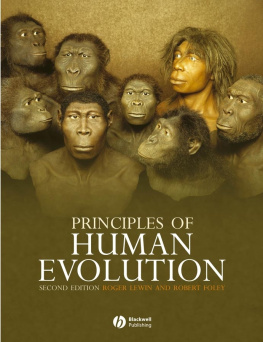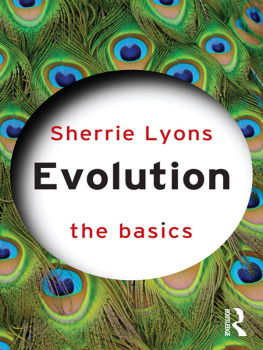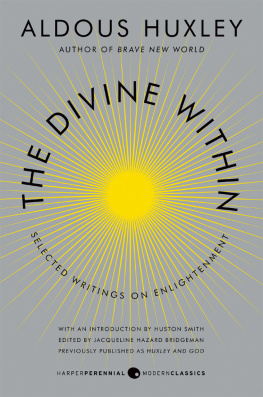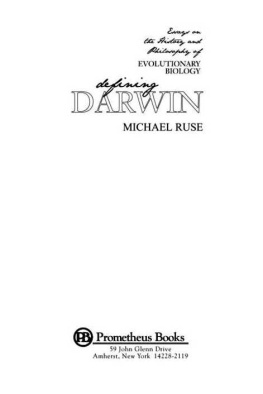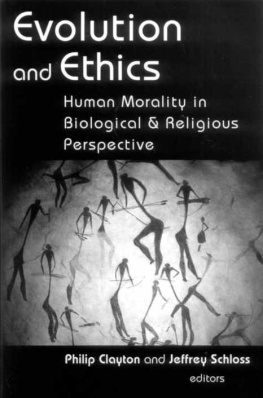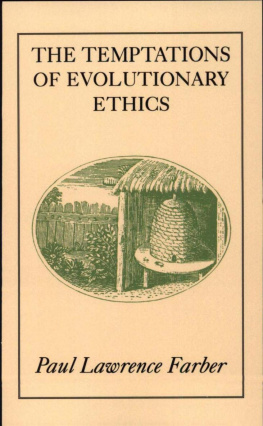Table of Contents
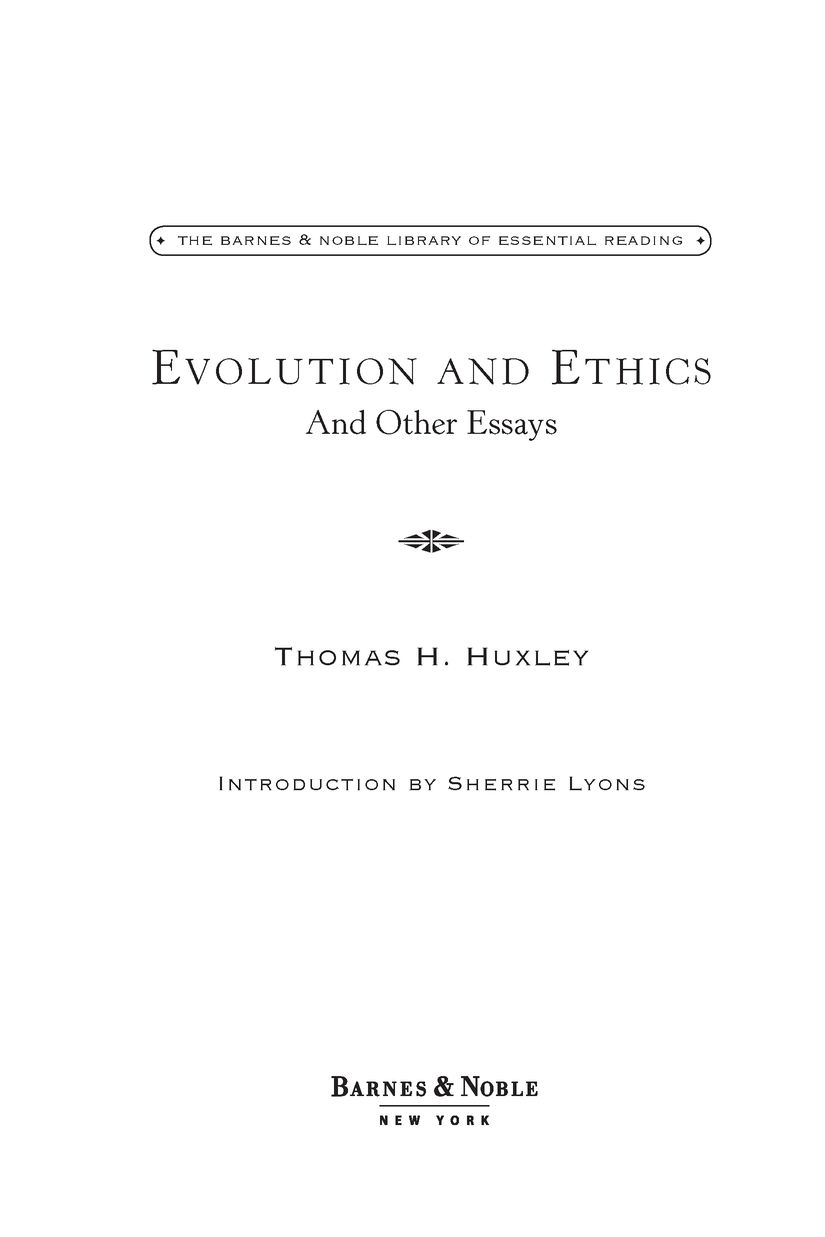
INTRODUCTION
ALTHOUGH THOMAS HUXLEY DUBBED HIMSELF DARWINS BULLDOG and said he was prepared to go to the stake if necessary to defend Darwins theory of evolution, he did not think the doctrine of evolution could give us the ethics to put into practice. In spite of the vast amount of literature on evolutionary ethics that has accumulated since Huxley wrote Evolution and Ethics, his book still provides one of the clearest articulations on the subject. Huxley argued that even if one accepts that evolution has produced creatures such as ourselves with a moral sense, it does not follow that we can look to evolution to define the content of what we call moral. Controversial in Huxleys time, evolutionary ethics remains a hotly debated topic today. Evolutionary theory has and continues to provide tremendous insight on our quest to understand the brain and behavior. Moral systems are a universal characteristic of human societies; therefore the tendency to develop them must be an integral part of human nature. Any evolutionary account of our origins must take morality quite seriously, and we must build it into our theories about human behavior. However, the attempt to build a naturalistic ethics grounded in evolutionary theory remains problematic, and Huxleys writings are as relevant today as when he first penned them. His style is sharp and lucid, and Evolution and Ethics displays Huxleys far-reaching knowledge of a vast array of topics, from Buddhism to the nature of consciousness, and provides guidance in navigating the land mines that infuse the field of evolutionary ethics.
Thomas H. Huxley was born in 1825 in the English country village of Ealing. He was the youngest of seven children of George and Rachel Withers Huxley. His father was a schoolteacher, but Huxley received little regular schooling and was largely self-taught. Even as a young boy he had interests in a staggering array of subjects. From James Hutton, he learned about geology. From reading Sir William Hamiltons The Philosophy of the Unconditioned, he came to embrace the skepticism that typified his mature thought. Although he attended church regularly, as he grew older he realized that he was one of those skeptics or infidels of whom preachers spoke with horror. Often called an atheist or a materialist, Huxley later coined the term agnostic to describe his own philosophical system of belief after finding that none of the various other isms properly described his views. From Thomas Carlyle, he developed a sympathy for the poor that was later reinforced by his exposure to the squalor and poverty he saw in the East End of London.
Huxley showed an affinity for anatomy and received a scholarship to the medical school attached to Londons Charing Cross Hospital when he was only fifteen. Except for physiology, most of the medical curriculum bored him. Nevertheless, he won first prize for chemistry, also taking honors in anatomy and physiology. He later won a gold medal in those subjects in the Bachelor of Medicine exam, but he was too young to qualify for a license to practice medicine. Like many others who made their mark in the natural sciences, Huxley took a voyage around the world, serving as the assistant surgeon on the HMS Rattlesnake from 1846 to 1850. In Australia he met his future wife, Henrietta Anne Heathorn. They married in 1855 and had a long and happy marriage and seven children.
Huxleys life was one of incessant activity. He lectured at the School of Mines and continued to do research in physiology and biology. Evenings were often spent speaking before working men or learned societies. In 1862, he served as president of the biology section of the British Association for Advancement of Science (BAAS), and he became president of the association in 1870. In 1869 and 1870, he was president of both the Geological Society and the Ethnological Society.
Huxleys voyage on the Rattlesnake resulted in some of his most important scientific work and established his reputation within the scientific community. However, it was his defense of Darwinism that brought him into the public spotlight in a famous encounter with Bishop Samuel Wilberforce at the 1860 Oxford meeting of the BAAS. Wilberforce, who had been coached by Richard Owen in his attack on evolution, asked Huxley whether it was on his grandfathers or his grandmothers side that the ape ancestry comes in. Huxley replied:
... a man has no reason to be ashamed of having an ape for his grandfather. If there were an ancestor whom I should feel shame in recalling it would rather be a man of restless and versatile intellectwho, not content with an equivocal success in his own sphere of activity, plunges into scientific questions with which he has no real acquaintance, only to obscure them by an aimless rhetoric, and distract the attention of his hearers from the real point at issue by eloquent digressions and skilled appeals to religious prejudice.
Huxleys reply created pandemonium. According to one account, ladies fainted.
Huxley correctly perceived that the most threatening aspect of Darwins theory was its significance for human origins. This resulted in his most famous work, Mans Place in Nature, which was published in 1863, eight years before Darwins Descent of Man. In it, Huxley argued powerfully and eloquently that humans were no exception to the theory of evolution. However, Huxley wrote several hundred scientific monographs and pursued a research program in developmental morphology that was quite distinct from the ideas espoused in The Origin of Species. Nevertheless, he is best remembered as a popularizer and defender of Darwinism and for his popular essays on a staggering array of subjects, from geology to education to religion. Evolution and Ethics is the final volume of a nine-volume set culled from hundreds of these essays.
Evolution and Ethics contains several essays, but the most frequently cited are the Romanes Lecture and the longer Prolegomena. George Romanes was a biologist and psychologist and a close colleague of both Darwin and Huxley. He founded the Romanes Lecture in 1892 as an annual free public lecture at Oxford University to be given by leading intellectuals. Romanes invited Huxley to give the second lecture in 1893, following William Gladstone, four-time prime minister of England and someone with whom Huxley had often crossed swords over political, religious, and scientific issues. However, the Romanes Foundation stated that the lecturer shall abstain from treating either Religion or Politics.
Huxley had long been thinking about the relationship of ethical and evolutionary theory in the history of philosophy. But he pointed out that Ethical Science was, on all sides, so entangled with Religion and Politics that he needed all the dexterity of an egg-dancer. Fortunately, the prohibition against addressing religion and politics in the Romanes Lecture no longer holds. Princeton University President Shirley M. Tilghman began the 2005 Romanes Lecture, Strange Bedfellows: Science, Politics and Religion, by pointing out that she by necessity will be walking on Huxleys metaphorical eggshells.
Darwins ideas had led many thoughtful people to ask whether it was possible to create a system of ethics based on evolutionary theory. At first glance it appears that Huxley has answered this question with a resounding no.
The propounders of what are called the ethics of evolution, when the evolution of ethics would usually better express the object of their speculations, adduce a number of more or less interesting facts and more or less sound arguments in favor of the origin of the moral sentiments... by a process of evolution.... But as the immoral sentiments have no less been evolved, there is so far, as much natural sanction for the one as the other.



